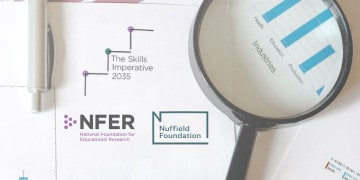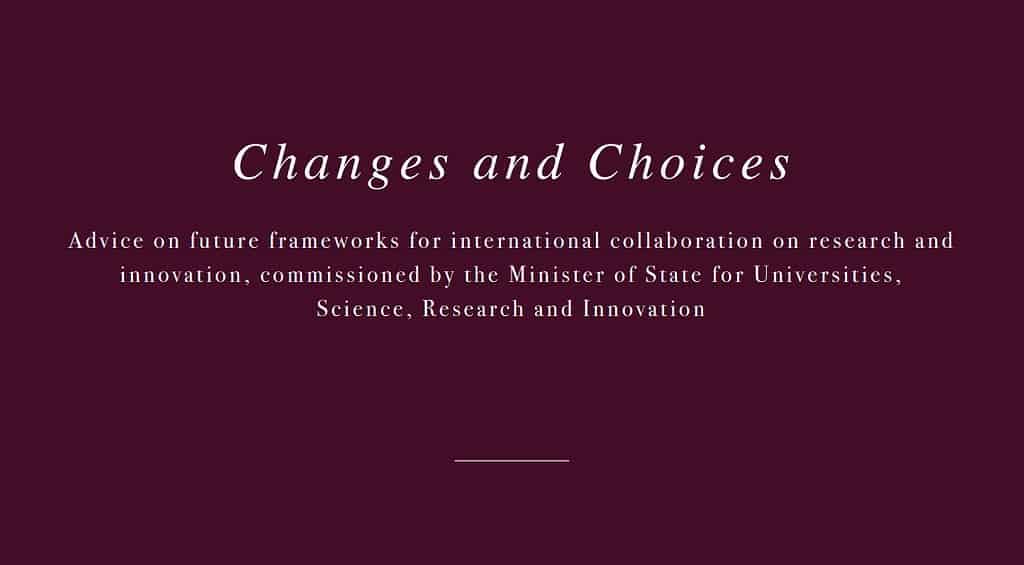Sir John Holman, author of the Gatsby Foundation’s Good Career Guidance report, discusses the importance of effective careers guidance
Good career guidance – the key to social mobility
09 Mar 2018
A few days ago I went to the laboratories of LGC Fordham, near Cambridge, to meet current and former apprentices. They work in labs using sensitive, delicate and complex machines to do things like analysing racehorse urine for tiny traces of banned substances. Half the apprentices were male, half female and they came from all sorts of social backgrounds. They were learning scientific skills that will serve them even better in the laboratory than the skills they would learn at university. This was an enthusiastic group of young technicians who were confident they had chosen a career route that suited them well.
An apprenticeship is not what many people would associate with a job in a high-tech laboratory. If I’d had time, I would have asked them where they first learned about the opportunities an apprenticeship can offer. Was it at school?
I first became interested in the importance of school career guidance when I realised how important it is for careers in STEM. Rightly or wrongly, science and mathematics are seen by many students as being harder than other subjects – but they are also the key to many rewarding careers. We know that students at schools in deprived socioeconomic situations are less likely to choose science and mathematics as study options. If those students were shown what STEM careers offer, they may better see the point of persevering with the subjects that unlock them.
My interest in career guidance was strengthened when I was a headteacher. I realised how influenced most students are by the career steers they get from home – but the advice coming from home may be shaped by stereotypes and limited to the career pathways experienced by family and friends. Schools and colleges are where young people need to be able to get unbiased guidance on the whole rich panoply of careers available, and the routes to reach them. Good career guidance in schools is the key to social mobility.
The CaSE policy review on Diversity recommends Embed diversity and inclusion throughout a joined-up careers strategy – and now is the time to be calling for that.
In December the Department for Education published a new strategy for careers which is joined-up in a way that past government policy in this area has never been. The strategy is based on a framework defined by the eight Gatsby Benchmarks for Good Career Guidance. The Benchmarks came from an international study of six countries where careers guidance is known to be good, supported by a literature review, a costing exercise and a survey of 10% of the schools in England. The Good Career Guidance report was published in 2014, followed by a two-year pilot of the Benchmarks in 16 schools and colleges in the North East of England. Those involved made rapid progress: at the start of the pilot, 50% of the schools and colleges fully achieved zero benchmarks; after two years, over 85% fully achieved six or more benchmarks. Some of the most rapid progress was made by institutions in the most deprived situations.
Schools and colleges that reach the Gatsby Benchmarks – as government policy now expects them to – will embed inclusion and diversity throughout their careers work. Let me show how, with some examples:
Benchmark 2: Learning from career and labour market information, expects students to be able to access authentic data about the earnings and vacancies in different careers – and the career paths leading to them. This will help them, and their parents, make decisions about future study based on facts, not hearsay.
Benchmark 3: Addressing the needs of each student, expects a school’s careers programme to actively challenge stereotypical thinking and raise aspiration. Schools are expected to collect accurate data on each student’s destination after they leave school. By analysing this data, schools can see how well they are doing in practice in countering stereotypes.
Benchmark 5: Encounters with employers and employees, expects each student to have at least one encounter with an employer every year. This is a great opportunity for schools to show students first-hand the diversity of jobs that are available. It’s especially powerful if schools can offer encounters with their own alumni, from diverse backgrounds and in diverse occupations, so students can see the careers that ‘people like me’ can get on in.
These benchmarks may seem challenging – and they are meant to be, because we defined a framework for world-class career guidance. But the pilot in the North East showed that they are achievable, by all types of school. By working towards these benchmarks, schools can play a powerful part in achieving a more diverse workforce. That will help us all, because inclusion and diversity are not only fairer – they give better results in the workplace.
Sir John Holman is author of the Gatsby Foundation’s Good Career Guidance report
For more information on the Gatsby Benchmarks please visit www.goodcareerguidance.org.uk
Related articles

The Physiological Society’s policy team on the health challenges facing older workers and the urgent need to develop a strategy to ensure older people are happy and healthy at work.

Jo Reynolds, Director of Science and Communities at the Royal Society of Chemistry, on the RSC’s new summary report looking to unlock the potential of deep tech SMEs.

Lisa Morrison Coulthard, Research Director at the National Foundation for Education Research, on the Nuffield Foundation funded five year research programme providing insights into the essential employment skills needed for the future workforce

Sir Adrian Smith, Institute Director and Chief Executive of The Alan Turing Institute, and Graeme Reid, Professor of Science and Research Policy at UCL, set out the findings from their new independent report on international partnership opportunities for UK research and innovation